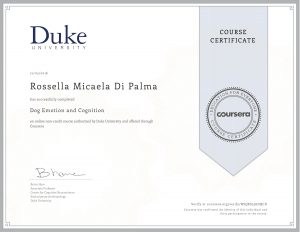Dalla parte del cane
Eccomi, finalmente dopo alcuni mesi molto intensi. Ho terminato gli esami necessari alla laurea in medicina veterinaria e ora, tirocini a parte, dovrò occuparmi della tesi che riguarderà i cani da caccia. Se volete saperne di più sul Gundog Research Project cliccate sul link. Prima di affrontare la letteratura scientifica dura e pura, ho deciso di dare un’occhiata ai libri che avevo in casa e… ho alcuni suggerimenti. Se non la conoscete, iniziate a guardarvi i lavori di Temple Grandin, questa donna ha molto da dire. (Alcuni dei sui libri sono pubblicati in italiano).
Poi, andando più nel dettaglio, vi consiglio uno dei miei libri preferiti. Il titolo originale inglese è In Defence of Dogs di John Bradshaw orrendamente tradotto in “La naturale superiorità del cane sull’uomo” e… pare fuori stampa. Un vero peccato: è un libro gradevolissimo da leggersi e di grande rigore scientifico, ogni cinofilo dovrebbe leggerlo. Il secondo libro si intitola The Domestic Dog. Its Evolution, Behavior and Interactions with People. Si tratta di un’antologia curata da James Serpell che racchiude parti di differenti studiosi tra cui Raymond Coppinger, M.B. Willis, Benjamin and Lynette Hart e Valerie O’ Farrel. Non mi risulta tradotto in italiano ma c’è anche un articolo curato da Boitani e altri collaboratori. Io possiedo l’edizione del 1995, prima edizione, ma ho intenzione di controllare anche la nuova edizione, 2016 sicuramente più aggiornata.
Un’altra risorsa interessante è il corso online Animal Behavior and Welfare a cura della University of Edinburgh disponibile online attraverso la piattaforma Coursera.org il corso è gratuito e sono disponibili i sottotitoli delle lezion in italiano.
Cercherò di scrivere altro molto presto!
